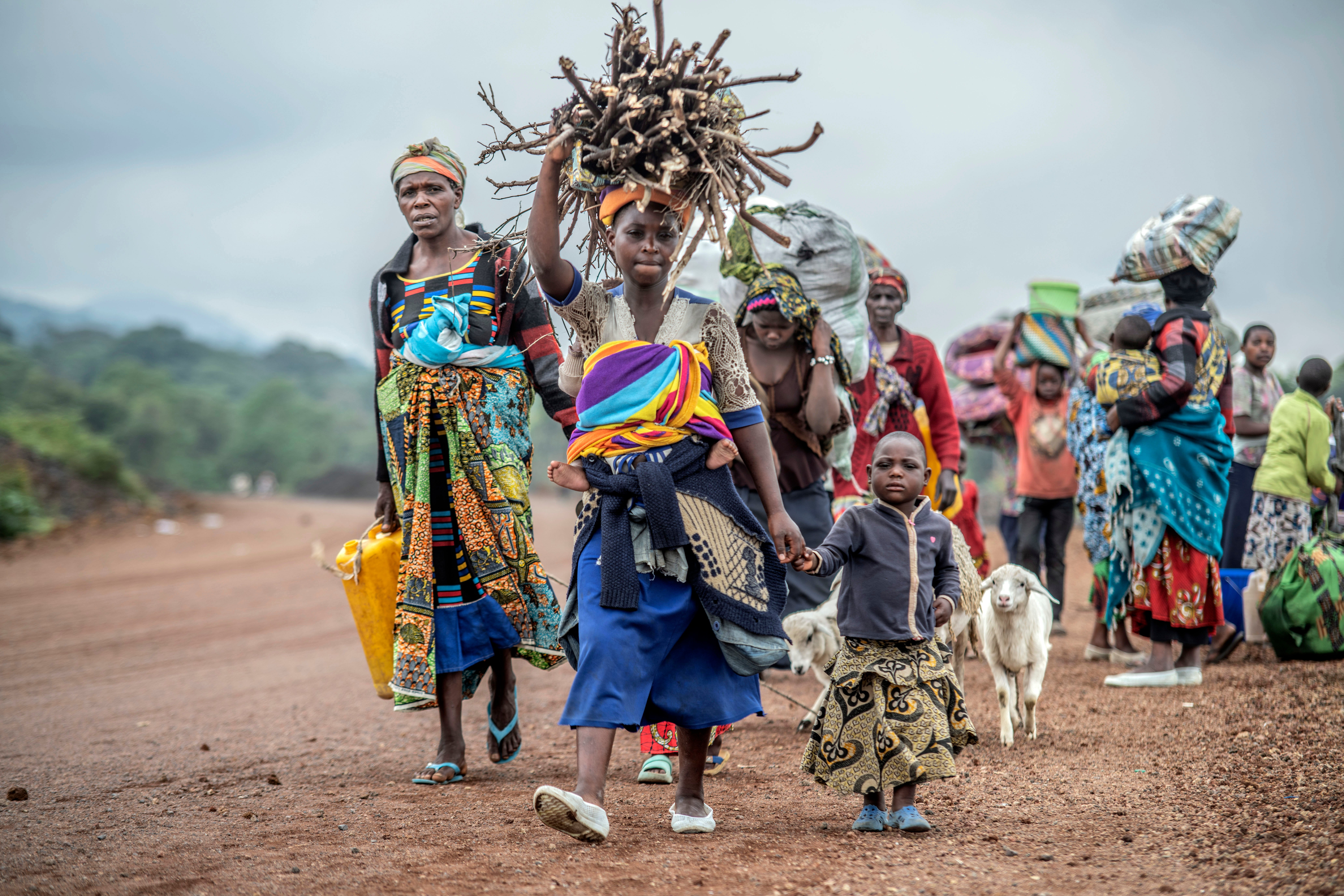UN hands over 1st military base in Congo to begin its drawdown after decades in the country
United Nations peacekeepers have handed over their first military base to security forces in eastern Congo as part of an eventual withdrawal after decades of operating in the country, and as violence soars in the conflict-riddled region

Your support helps us to tell the story
From reproductive rights to climate change to Big Tech, The Independent is on the ground when the story is developing. Whether it's investigating the financials of Elon Musk's pro-Trump PAC or producing our latest documentary, 'The A Word', which shines a light on the American women fighting for reproductive rights, we know how important it is to parse out the facts from the messaging.
At such a critical moment in US history, we need reporters on the ground. Your donation allows us to keep sending journalists to speak to both sides of the story.
The Independent is trusted by Americans across the entire political spectrum. And unlike many other quality news outlets, we choose not to lock Americans out of our reporting and analysis with paywalls. We believe quality journalism should be available to everyone, paid for by those who can afford it.
Your support makes all the difference.United Nations peacekeepers handed over their first military base to security forces in eastern Congo on Wednesday as part of an eventual withdrawal after decades of operating in the country. The handover comes as violence soars in the conflict-riddled region.
Peacekeepers transferred responsibility and equipment at its base in Kamanyola in South Kivu province to Congo's national police as part of a phased drawdown agreed upon between the government and the U.N. last year.
Eastern Congo has long been overrun by dozens of armed groups seeking a share of the region’s gold and other resources. The U.N. has been operating in the country for 25 years with its primary mission being the protection of civilians. But frustrated Congolese say that no one is protecting them from rebel attacks, leading to protests against the U.N. mission and others that have at times turned deadly.
Last year, the U.N. Security Council extended the peacekeeping mandate until Dec. 20 and decided that its troop ceiling until June 30 should be 13,500 military personnel, 660 military observers and staff officers, and 2,001 international police. It ordered a reduction from July to 11,500 military personnel, 600 military observers and staff officers and 1,713 international police.
The mission is expected to close 14 bases and facilities in South Kivu by June, at which point the U.N. Security Council will decide on a timeline for the rest of the withdrawal.
The drawdown comes amid soaring violence in recent weeks as one of the most active rebel groups, M23, launched attacks against a community considered the last line of defense before the region’s largest city of Goma.
The M23, with alleged ties to Rwanda, had been dormant for nearly a decade but resurfaced more than two years ago. Its fighters are accused of seizing swaths of land, forcing thousands of people to flee and causing a dire humanitarian crisis.
The U.N. says it's it's been supporting Congo's army by defending positions that are protecting civilians, which remain in tact despite coming under fire.
Speaking at the ceremony on Wednesday, U.N. mission chief Bintou Keita said she hoped the handover was the start of a peaceful withdrawal process.
“We hope that the handover of Kamanyola ... will serve as a model and inspiration for the rest of (the peacekeepers') disengagement process,” she said.
But there were mixed emotions among the population Wednesday as the base was handed over. Some praised the mission for its peace-building work. The U.N. “has contributed a great deal,” said Gloire Bahati. “I can imagine that without it, we would all be trampled underfoot by our enemies."
Others said it was time for Congo's security forces to protect the country, noting that decades of foreign involvement had yielded little.
’When (the UN) arrived, we thought we would see a serious crackdown on insecurity," said Ushindi Kulimushi a resident of the town. "But unfortunately, we have experienced the same thing up to the present day. Let (them) go, because it has failed in its mission," he said.
___
Associated Press writer Sam Mednick contributed from Dakar, Senegal